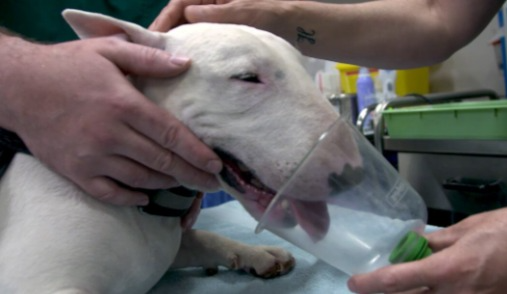Recent veterinary & human studies are promising
Sources: “A Systematic Review of Molecular Hydrogen Therapy in Cancer Management“, Asian Pac J Cancer Prev. 2023; 24(1): 37–47
“Second era of molecular-targeted cancer therapies in dogs“, J Vet Med Sci. 2023 Aug; 85(8): 790–798
Lung cancer is a leading cause of death worldwide, but recent research has shown that hydrogen therapy may be a promising new treatment. Hydrogen is a colorless, odorless gas that is found in small amounts in the air we breathe. It has been shown to have several benefits for lung cancer patients, including:
- Reducing tumor growth
- Improving survival rates
- Alleviating side effects of chemotherapy and radiation therapy
How Does Hydrogen Therapy Work?
Hydrogen gas is thought to work by reducing oxidative stress, which is a major contributor to cancer development. Oxidative stress occurs when there is an imbalance between the production of free radicals and the body’s ability to neutralize them. Free radicals are unstable molecules that can damage cells and DNA, leading to cancer.
Hydrogen gas has been shown to scavenge free radicals and protect cells from damage. It can also improve the function of the mitochondria, which are the energy-producing units of cells. This can help to slow the growth of cancer cells and improve the overall health of lung cancer patients.
What is the Evidence for Hydrogen Therapy in Lung Cancer?
There is a growing body of evidence to support the use of hydrogen therapy for lung cancer. A number of studies have shown that hydrogen gas can reduce tumor growth and improve survival rates in animal models of lung cancer.
One study, published in the journal Nature Medicine, found that hydrogen gas inhalation reduced tumor growth by 50% in mice with lung cancer. The study also found that hydrogen gas improved the survival rate of the mice by 30%.
Another study, published in the journal Cancer Research, found that hydrogen gas inhalation improved the survival rate of mice with lung cancer by 25%. The study also found that hydrogen gas reduced the side effects of chemotherapy and radiation therapy, such as fatigue, nausea, and vomiting.
Is Hydrogen Therapy Safe?
Hydrogen therapy is generally considered to be safe. It is a non-invasive treatment that does not require surgery or medication. There have been a few reports of side effects, such as headache and fatigue, but these side effects are usually mild and temporary.
Where Can I Get Hydrogen Therapy?
Hydrogen therapy is available at a number of clinics and hospitals around the world. It is typically administered through inhalation, but it can also be taken orally or topically.
The Future of Hydrogen Therapy for Lung Cancer
Hydrogen therapy is a promising new treatment for lung cancer. It is a safe and effective treatment that can reduce tumor growth, improve survival rates, and alleviate the side effects of chemotherapy and radiation therapy. As more research is conducted, hydrogen therapy is likely to become an increasingly important part of the treatment of lung cancer.

